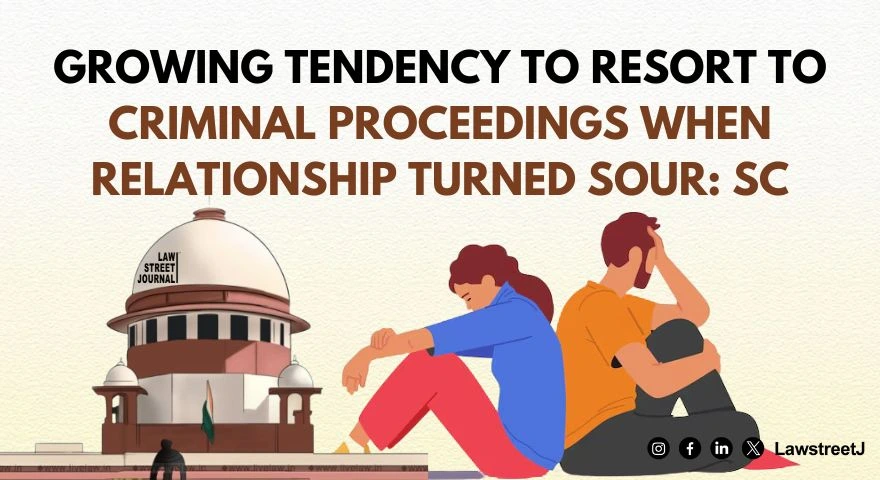NEW DELHI: The Supreme Court on Monday expressed concern over a growing tendency of resorting to initiation of criminal proceedings when relationships turn sour. It held that every consensual relationship, where a possibility of marriage may exist, cannot be given a colour of a false pretext to marry, in the event of a fall out.
A bench of Justices B V Nagarathna and Satish Chandra Sharma quashed criminal proceedings initiated against appellant Biswajyoti Chatterjee, an ex judicial officer.
While posted as judicial officer, he was alleged to have exploited a woman since 2014 as she came in contact with him during the pendency of her marital discord with her then husband.
Having examined the facts of the case, the bench said the physical relationship between the complainant and the appellant was consensual, that cannot be said to be without her consent or against her will.
"It is such lis that amounts to an abuse of process of law, and it is under such circumstances, that we deem fit to terminate the proceedings at the stage of charge itself," the bench said.
During the pendency of the litigation arising out of a marital discord with her ex-husband, the woman came in contact with the appellant, then posted as ACJM, Haldia, Dist Purba, Medinipur.
It was the case of the complainant that the appellant, who was also separated from his wife, had assured the complainant that he will marry her and will take complete responsibility of her and her son from the first marriage, as his own, once she gets divorced.
He purportedly kept the complainant in a rented house at Tamluk, and got her son admitted in Tamralipta Public School, at his expense. The appellant also regularly transferred money into the bank account of the complainant for her day-to-day expenses and that of her son. It was allegedly on this pretext that the appellant had physical relations with the complainant on multiple occasions.
In its judgment, the court noted the incident is of the year 2014 and any further litigation, will only prolong the suffering of both the parties, who are living their own separate lives. At the time of the alleged incident, the appellant was 56 years old, while the complainant was 36 years old, having a child aged 11 years.
The bench said It is her own case that during the relevant time, he had duly informed her that he was separated from his wife. The complainant who was well aware of the personal as well as the professional background of the appellant, had been receiving financial help from him for herself and her son. She must have carefully weighed her decision before entering into a relationship with the appellant, the court said.
"Even if we take the case of the complainant at the face value or consider that the relationship was based on an offer of marriage, the complainant cannot plead ‘misconception of fact’ or ‘rape on the false pretext to marry’. It is from day one that she had knowledge and was conscious of the fact, that he was in a subsisting marriage, though separated," the bench noted.
It is upon having an active understanding of the circumstances, actions and the consequences of the acts, that she made a reasoned choice to sustain a relationship with him. Her conduct ex-facie represents a reasoned deliberation, the bench found.
"In our considered view, even if the allegations in the FIR and the charge-sheet are taken at their face value, it is improbable that she had engaged in a physical relationship with the appellant, only on account of an assurance of marriage," the bench said.
The court said, one may argue that he was in a position of power to exert influence, however, there is nothing on record to establish ‘inducement’ or ‘enticement’.















